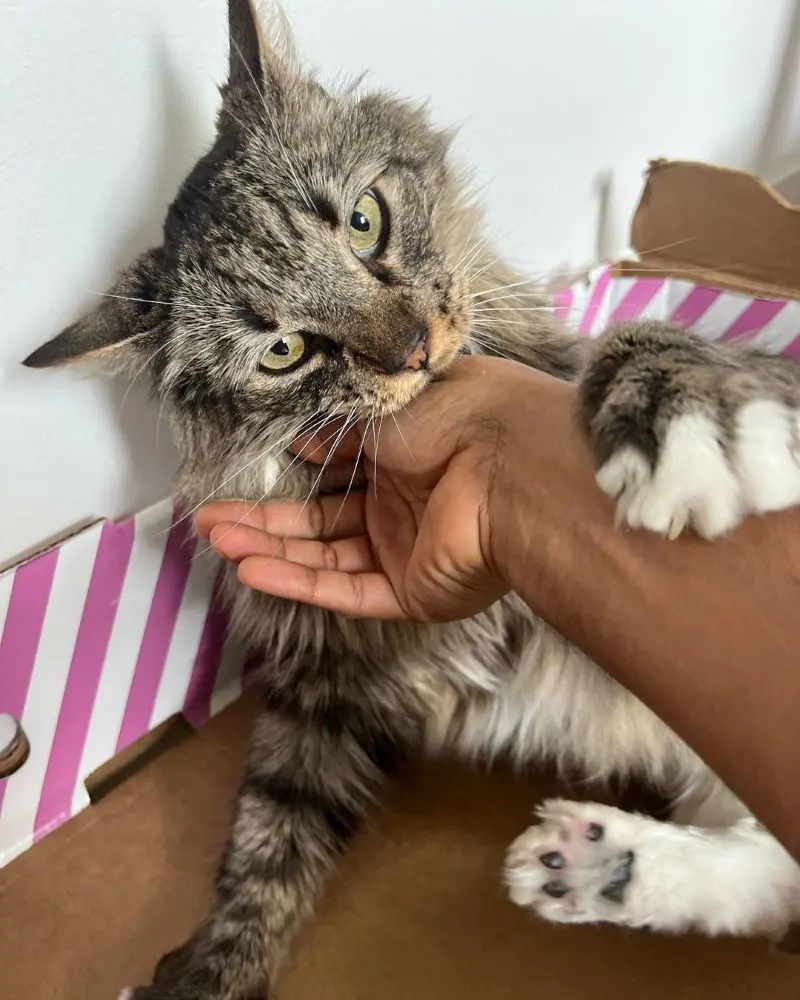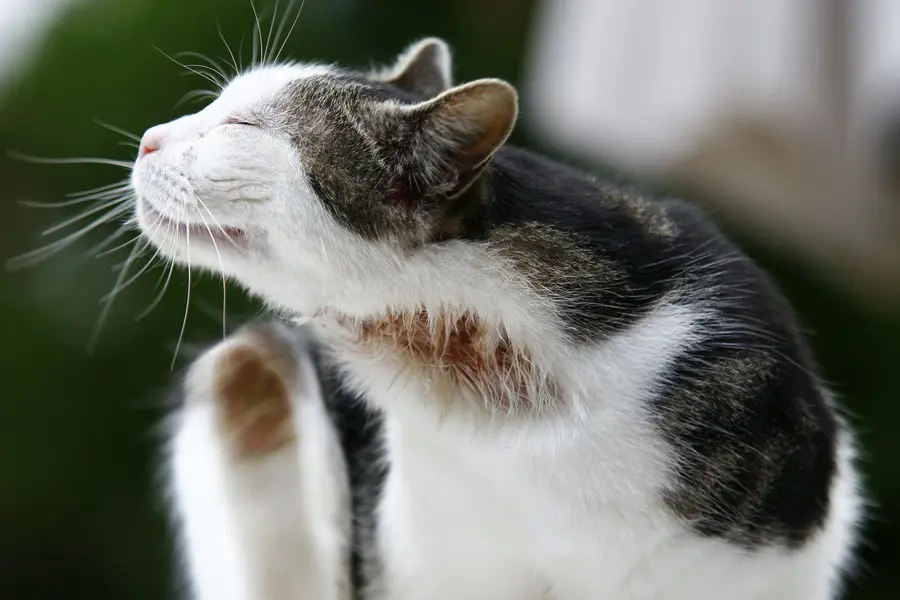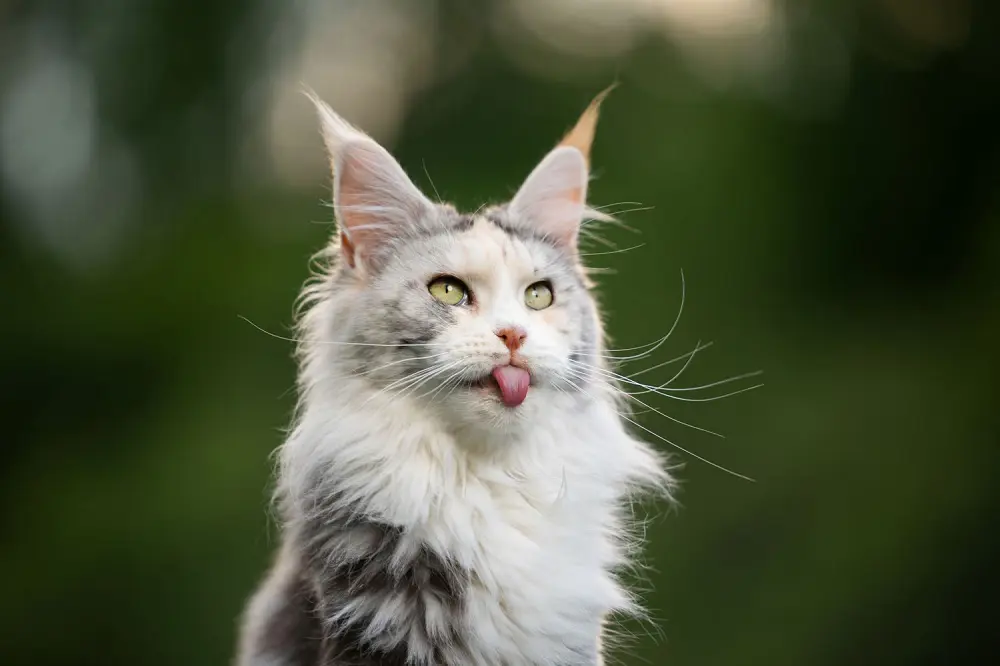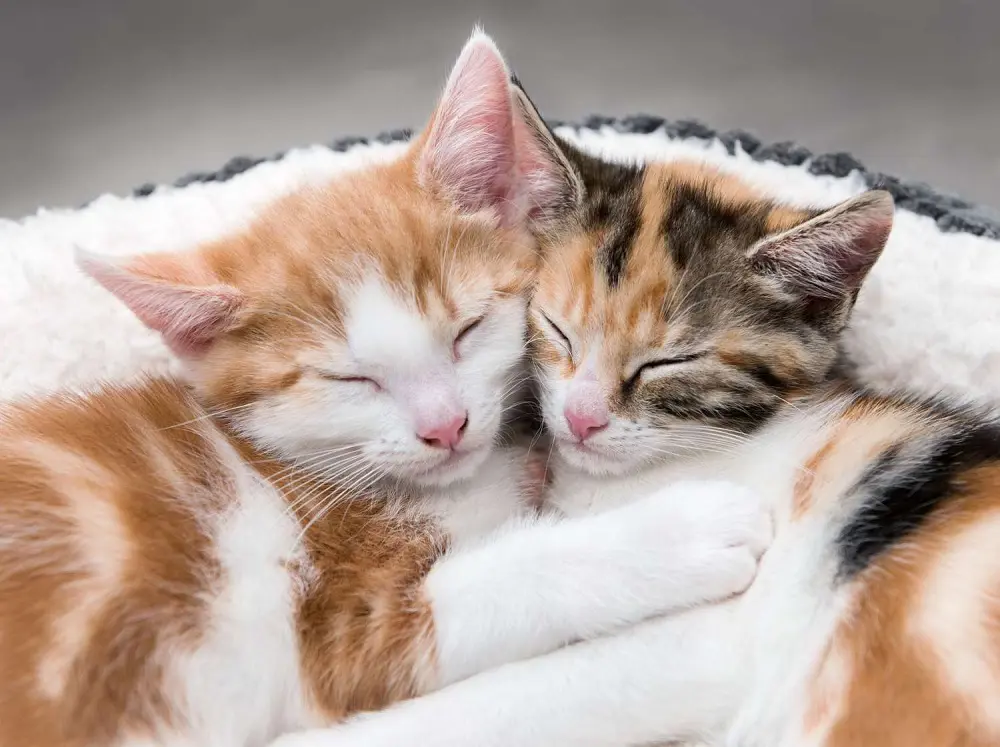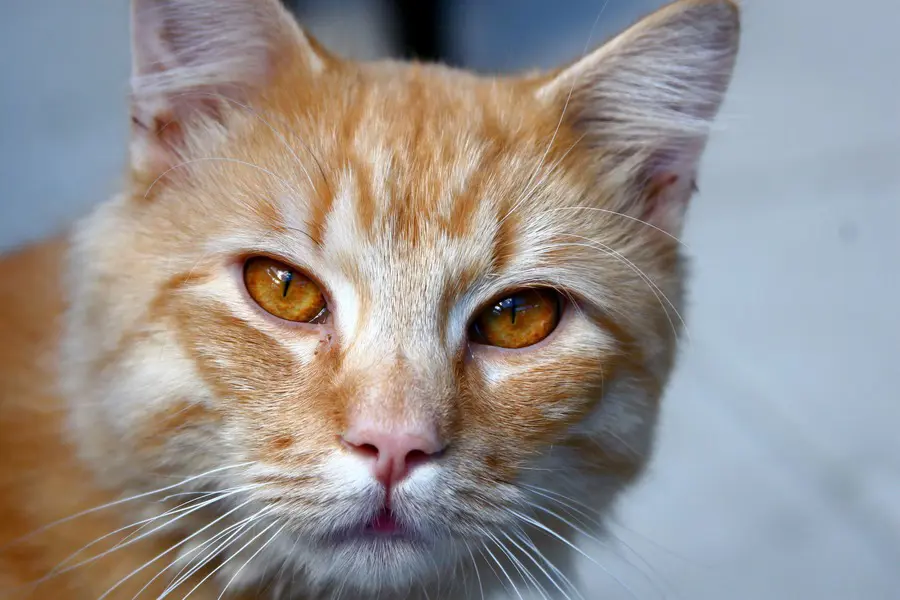18 Reasons Why Cats Hiss & How To Stop The Behavior
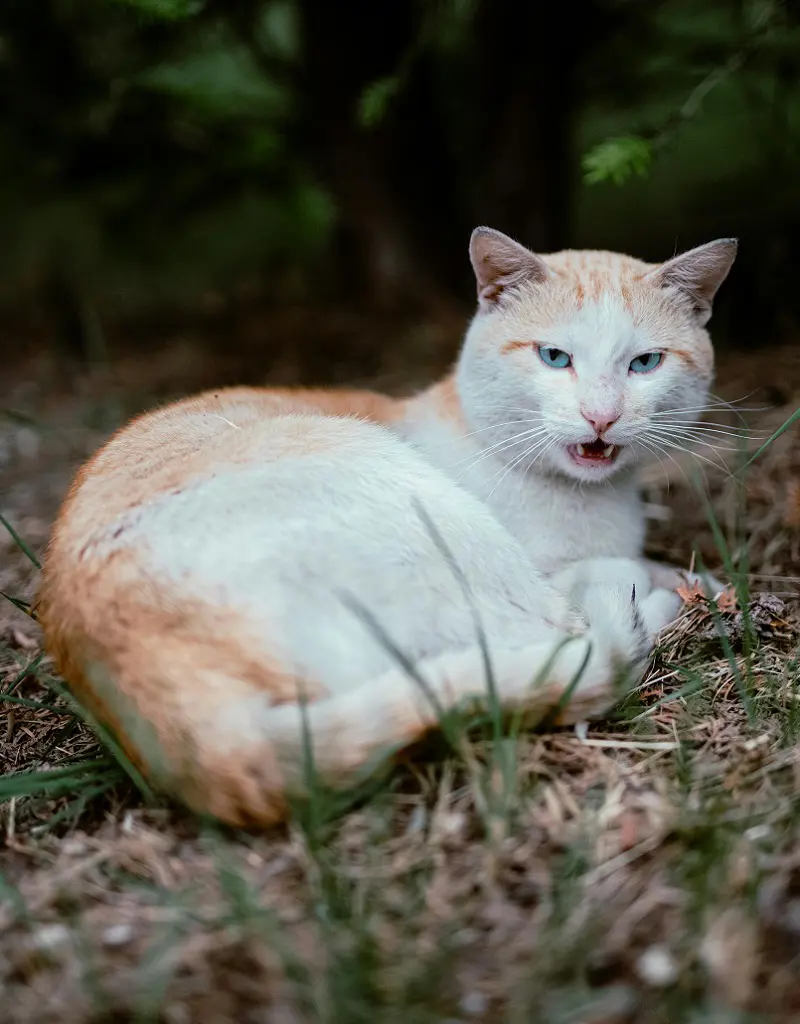
Cat hissing is a distinctive behavior that often surprises and intrigues those who witness it. The sound, a sharp and sudden exhalation, is accompanied by a variety of physical cues.
If your cats are hissing often or for a longer time, you should pay close attention to them. You can look at their environment or see their body gestures and try to understand what they are trying to say. Here are 18 reasons why cats hiss and also how to stop this behavior.
1. Fear
Cats use different ways to communicate when they are in fear, and hissing is also a way to express themselves. It is their natural defensive behavior when they feel threatened by unfamiliar people, some animals, or sudden loud noise.
It is their way of saying, don't do that, I am scared, and I might do something to defend myself. This expression can also be added with other body languages like dilated pupils, flattened ears, or a crouched posture with a puffed-up tail. All these indicate that the cat is ready to run or defend itself.
2. Pain
Cats often hide their pain but if they are handled or touched in a painful area, they might make this sound to communicate their discomfort. By doing so, they want to express not to touch in that particular area or in that way.
If you think pain is the particular reason behind that action, you should monitor its other actions too to see if they are really in pain. The sound can be accompanied by hiding, reduced appetite, aggression, lethargy, etc. As a pet owner, you need to consult to vet as soon as possible.
3. Overstimulation
When your cats are being patted or played with intensely and for too long, they become overstimulated to touch or interact. At that time, when they make the sss sound, they are saying that they had enough and want rest.
Before they become overstimulated, they show other signs like moving tail, ears flattening, sudden tensed body, etc. If you notice something like this, you should stop playing with them and let them be free.
4. Defensiveness
Your cats are very defensive pets and can become more alert if they feel threats, discomfort, or when they are unable to escape a perceived threat. When the cats feel they need to protect themselves, they make the sound as a response to it.
In that situation, you should make your cat rest and give them more comfortable space so that they can calm down. You can identify the triggers, avoid negative reinforcement, and consult a professional if you think your efforts are not working.
5. Territorial Instincts
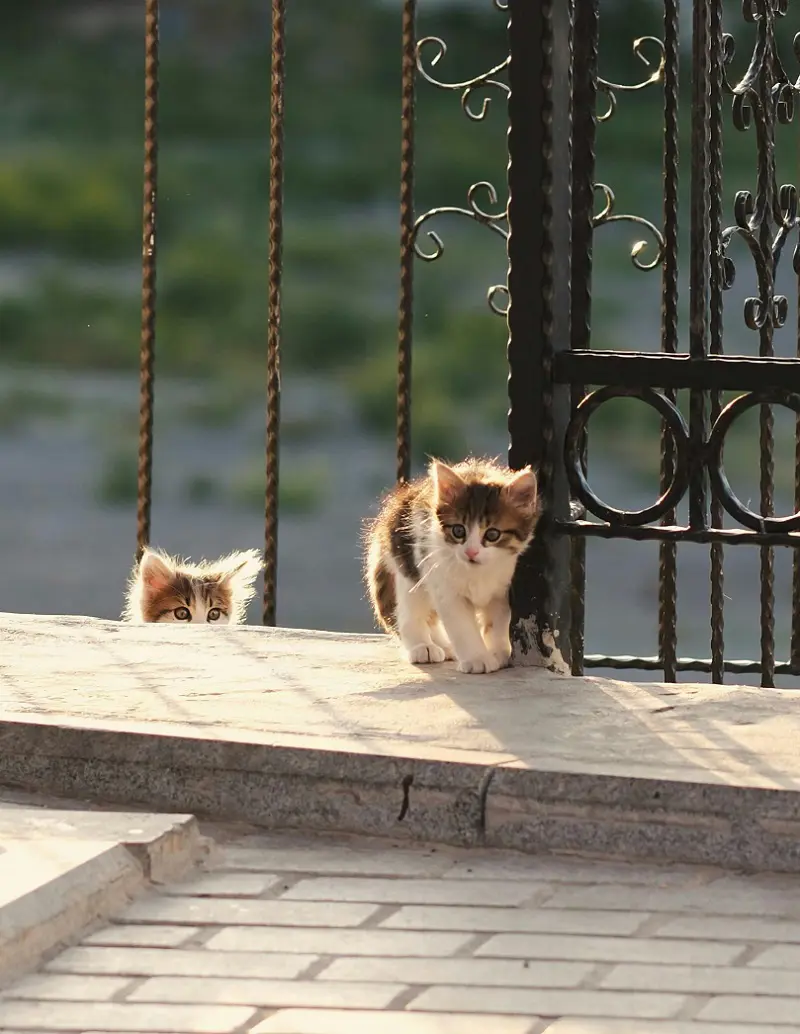
Cats being territorial animals, have a strong instinct to claim and defend their territory. If they think an unknown being or a new object is entering their territory, the cat hisses to warn them not to stay away, and that this is their area.
This behavior is a defensive mechanism that shows their readiness to defend their territory. It may later be accompanied by swatting or biting. As an owner, understanding the territorial area of your cat can help you have a harmonious environment, especially when you have more pets.
6. Protectiveness
Protectiveness in cats is often called maternal aggression or protective aggression where the cats show a protective reaction to guard their young ones, their territory, or a human they are close with.
Especially for a mother cat, if they feel something unknown is approaching, they try to defend their kittens by making this kind of sound, to ask them to stay away. As an owner, you should understand their protective barrier and respect it. This can help you to manage the cats' behavior effectively.
7. Aggression Warning
Your cat may be a gentle one, but if it feels dangerous, or something, it can turn into an aggressive mode. Hissing is a way of indicating that your cats are ready to become more aggressive if they need to.
When your cats are feeling uncomfortable or threatened, they may become more active and aggressive. In this situation, they may be warning you not to continue what triggered them. This can be followed by raised hackles, tensed body posture, tail signals, etc.
8. Social Hierarchy
There is a social hierarchy in the house if you have more cats because the cats are solitary animals like wolves. Social hierarchy in cats is a structured relationship and ranking among them, where the cats assert their territory over other animals and even objects if there are many of them and won't allow strangers in their territory.
In a hierarchy, there is an establishment of clear roles and boundaries within the group but if some don't follow it, in such a situation, your cat may make a weird noise.
9. Startled Reaction
When the cats are in their own space, a sudden noise or movement can catch them off guard. At that time, your cats make a hissing sound and express that they are alert and they have formed a defensive barrier to the potential threat.
As a startled reaction, they may jump or spin, or a puffed-up fur. You need to notice the actions and calm them. Some of the common triggers for the cat's startling reactions can be loud noise, unexpected movements, new objects, etc. This can impact your cat's behavior so you must be considerate towards them.
10. Resource Guarding
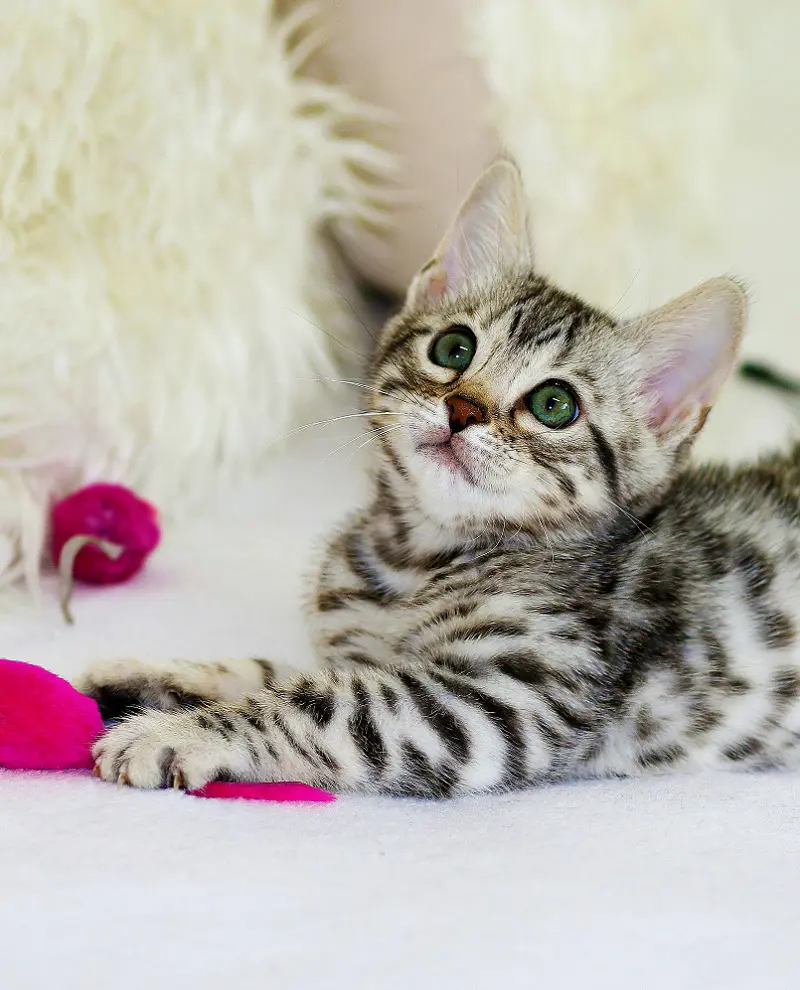
Resource guarding occurs when your cat is possessive over some resources, be it food, a toy, or a human. Your cat may have something they often play with and love it. If anyone tries to take them or play with them, the cat becomes more aggressive and makes a noise, ready to fight back.
When they are protective of their food, toys, and other valued items, they form a territorial aggression and are driven by the feeling to protect what they value. Along with hissing, they show other aggressive behaviors like blocking the resources, stiff body language, vocalizing, etc.
11. Illness
Illness can result in certain behavioral changes in the cats, among which making that weird sound is also one. They may be feeling pain and discomfort because of their illness like dental issues or joint pain and at that time also, the cats may hiss.
Illness can make them more aggressive, change in their attitude and temper, their appetite, and many other factors. As an owner, you must be attentive and look if this is the cause of the weird noise that your cat is making and plan accordingly. Sometimes, this may also help you to find the problem in time.
12. Annoyance
If you are playing with your cat for a long time and irritating them, at that time, they can be annoyed and make a strange noise indicating that they are annoyed and you should leave them alone. You should notice the changes in their behavior and if you feel you have played enough, let them rest.
The annoyance of your cat can be followed by paw swatting, ear position change, avoidance, etc.
13. Lack Of Socialization
Although cats are social animals, if they are not exposed to other animals and new people, we can hear the sound hissing more frequently. which can be a response to new stimuli. This can be because they have encountered a new place, people, or situation, where they feel fear and discomfort.
The lack of socialization of your cats may lead to fear of new experiences, inability to handle novel stimuli, and also increase the level of anxiety in them. This will make it hard for your cats to live carefreely.
14. Stress
When you are changing your cat's place, moving to a new place, or even bringing a new pet, in that case, your cat may be stressed. They can make the sound in response to their stress towards the change and become more reactive and defensive.
Your cats may show defensive behavior with increased sensitivity when they are stressed and it can disrupt their normal routine. If you notice that your cats are stressed, try to observe their triggers and make adjustments to their daily life style.
15. Frustration
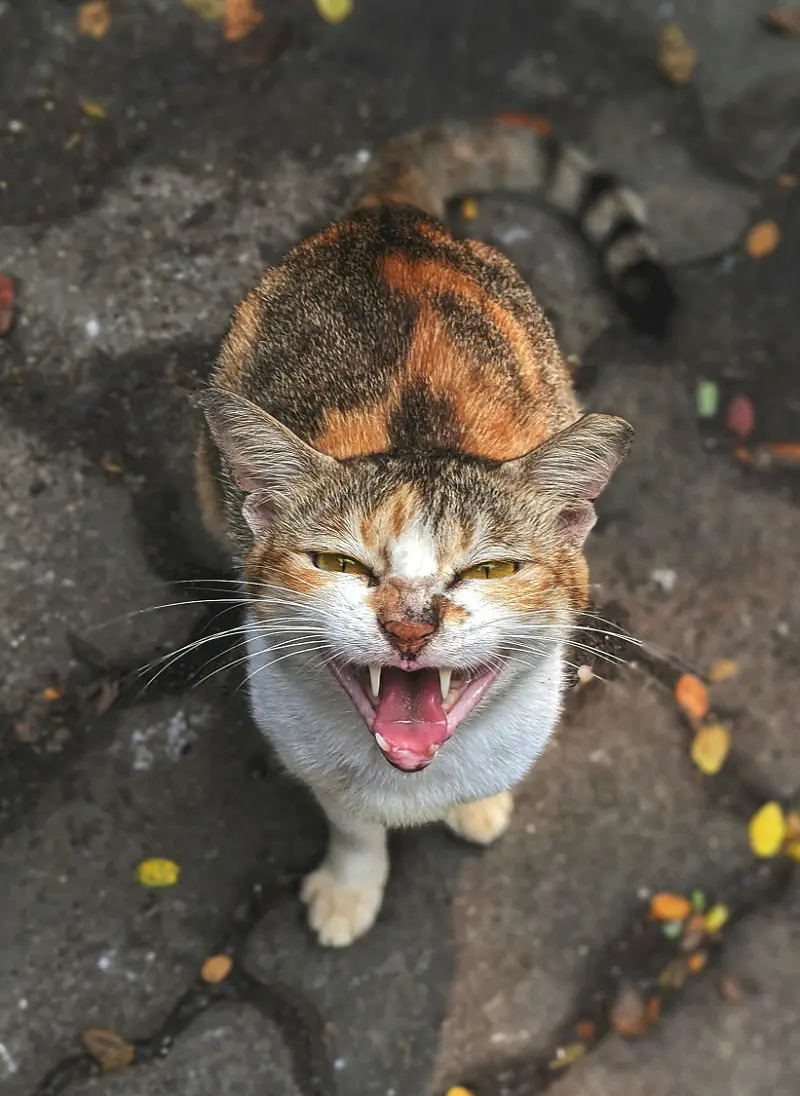
Cats are frustrated when their needs are not met, or when something is preventing them from achieving it. In that case, they need some ways to take their frustration out. For example, if your cat cannot reach the food you have kept which is on top of the table, at that time, your cat may be frustrated and make the sound to express their frustration.
Frustration can occur in cats because of various reasons like unmet needs, lack of stimuli, social issues, conflicts, etc. The pet owner should understand and address the underlying causes behind this behavior of your cats.
16. Miscommunication
Cats are social beings and loves to communicate, but as an owner, we may not always understand them. If the other person or another pet, with whom your cat is communicating misinterprets or doesn't acknowledge it properly, in that case as well your cats, make this fizz-like sound to show their unhappiness.
Miscommunications can happen because of various reasons like unrecognized signals, body language, human actions, interaction with other pets, changing reactions, and many more.
17. Previous Trauma
Cats who have past trauma regarding something or abuse may hiss more often and easily when they encounter some similar situation and feel threatened. Such cats may have high sensitivity to situations that may remind them of their past experiences.
Past trauma increases fear in the cats and may led them to have startled responses. They may be trying to set a boundry and say that they are not comfortable in certain situations because of their past experiences.
18. Personality
Every cat is different from one another. Their personality influences how they react to a certain situation and how they tackle them. Some cats who are naturally more reactive and vocal with a level of temper make this sound more easily and frequently.
Some of the common personalities of cats are: timid or shy, assertive or dominant, curious, independent, social, and many more. You need to know what sort of personality does your cat have and plan for it accordingly.
How To Stop The Behavior
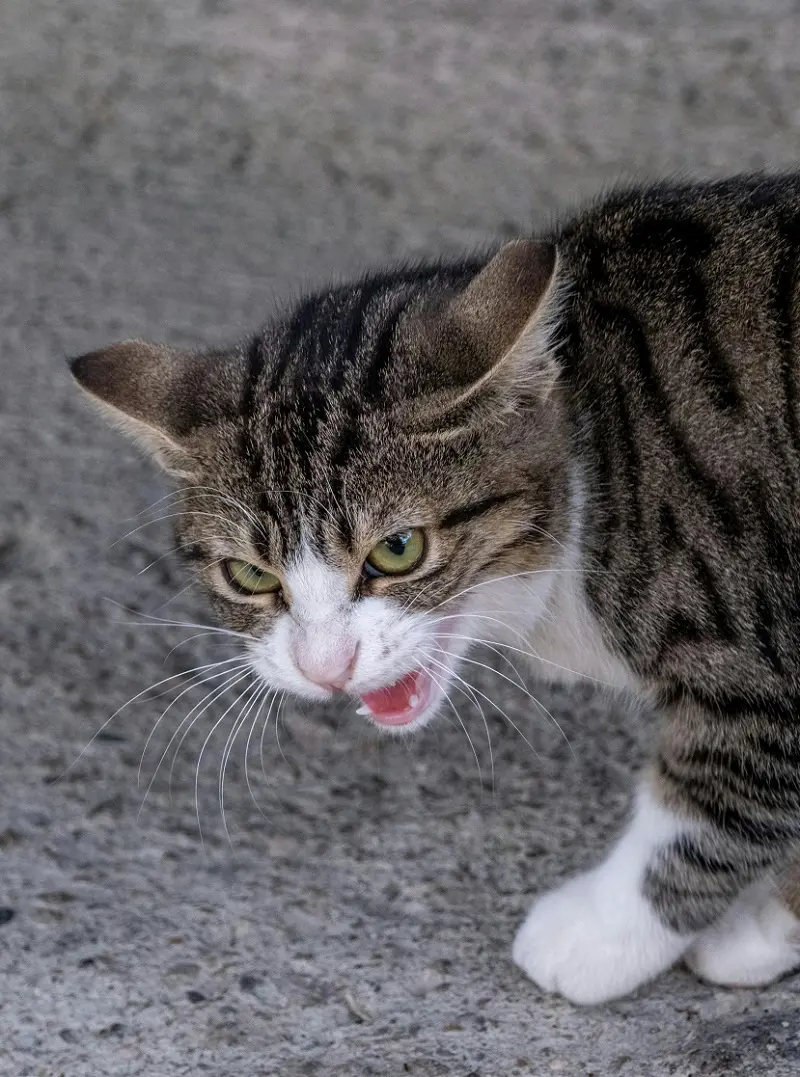
Stopping a cat from hissing involves understanding the underlying cause and addressing it effectively. First, ensure the cat feels safe and secure, as hissing often indicates fear or discomfort.
Create a calm environment by removing potential threats or stressors. Gradually introduce new pets or people to the household, allowing the cat to acclimate at its own pace.
Use positive reinforcement to build trust. Reward the cat with treats and praise when it remains calm in situations that previously triggered hissing. Avoid punishing the cat for hissing, as this can increase its anxiety and exacerbate the behavior. Instead, focus on providing reassurance and comfort.
If the hissing persists, consider consulting a veterinarian or a professional animal behaviorist. They can help identify any medical issues or deeper behavioral problems that might be causing the hissing.
Top Lists



